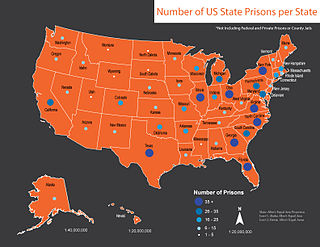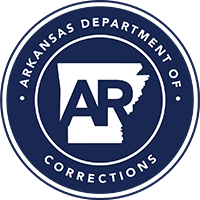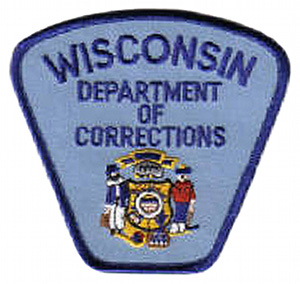
In criminal justice, particularly in North America, correction, corrections, and correctional, are umbrella terms describing a variety of functions typically carried out by government agencies, and involving the punishment, treatment, and supervision of persons who have been convicted of crimes. These functions commonly include imprisonment, parole, and probation. A typical correctional institution is a prison. A correctional system, also known as a penal system, thus refers to a network of agencies that administer a jurisdiction's prisons, and community-based programs like parole, and probation boards. This system is part of the larger criminal justice system, which additionally includes police, prosecution and courts. Jurisdictions throughout Canada and the US have ministries or departments, respectively, of corrections, correctional services, or similarly-named agencies.

Parole is a form of early release of a prison inmate where the prisoner agrees to abide by behavioral conditions, including checking-in with their designated parole officers, or else they may be rearrested and returned to prison.

The Wyoming Department of Corrections (WDOC) is a state agency of Wyoming that operates adult correctional facilities. It is headquartered in Suite 100 of the 1934 Wyott Drive building in Cheyenne.

This is a list of lists of U.S. state prisons (2010) :

The Arkansas Department of Corrections (DOC), formerly the Arkansas Department of Correction, is the state law enforcement agency that oversees inmates and operates state prisons within the U.S. state of Arkansas. DOC consists of two divisions, the Arkansas Division of Corrections (ADC) and the Arkansas Division of Community Corrections (DCC), as well as the Arkansas Correctional School District. ADC is responsible for housing and rehabilitating people convicted of crimes by the courts of Arkansas. ADC maintains 20 prison facilities for inmates in 12 counties. DCC is responsible for adult parole and probation and offender reentry.
A parole board is a panel of people who decide whether an offender should be released from prison on parole after serving at least a minimum portion of their sentence as prescribed by the sentencing judge. Parole boards are used in many jurisdictions, including the United Kingdom, the United States, and New Zealand. A related concept is the board of pardons and paroles, which may deal with pardons and commutations as well as paroles.
A state bureau of investigation (SBI) is a state-level detective agency in the United States. They are plainclothes agencies which usually investigate both criminal and civil cases involving the state and/or multiple jurisdictions. They also typically provide technical support to local agencies in the form of laboratory and/or record services, or to directly assist in the investigation of cases at the local agency's request.

A probation or parole officer is an official appointed or sworn to investigate, report on, and supervise the conduct of convicted offenders on probation or those released from incarceration to community supervision such as parole. Most probation and parole officers are employed by the government of the jurisdiction in which they operate, although some are employed by private companies that provide contracted services to the government.

The secretary of state is an official in the state governments of 47 of the 50 states of the United States, as well as Puerto Rico and other U.S. possessions. In Massachusetts, Pennsylvania, and Virginia, this official is called the secretary of the commonwealth. In states that have one, the secretary of state is the chief administrative officer of the state and is often the primary custodian of important state records. In the states of Alaska, Hawaii, and Utah, there is no secretary of state; in those states many duties that a secretary of state might normally execute fall within the domain of the lieutenant governor. Like the lieutenant governor, in most states, the secretary of state is in the line of succession to succeed the governor, in most cases immediately behind the lieutenant governor. In three states with no lieutenant governor as well as the U.S. territory of Puerto Rico, the secretary of state is first in the line of succession in the event of a gubernatorial vacancy.

The Tennessee Department of Correction (TDOC) is a Cabinet-level agency within the Tennessee state government responsible for the oversight of more than 20,000 convicted offenders in Tennessee's fourteen prisons, three of which are privately managed by CoreCivic. The department is headed by the Tennessee Commissioner of Correction, who is currently Frank Strada. TDOC facilities' medical and mental health services are provided by Corizon. Juvenile offenders not sentenced as adults are supervised by the independent Tennessee Department of Children's Services, while inmates granted parole or sentenced to probation are overseen by the Department of Correction (TDOC)/Department of Parole. The agency is fully accredited by the American Correctional Association. The department has its headquarters on the sixth floor of the Rachel Jackson Building in Nashville.

The Wisconsin Department of Corrections (WIDOC) is an administrative department in the executive branch of the state of Wisconsin responsible for corrections in Wisconsin, including state prisons and community supervision. The secretary is a cabinet member appointed by the governor of Wisconsin and confirmed by the Wisconsin Senate.

The Department of Public Safety and Corrections (DPS&C) is a state law enforcement agency responsible for the incarceration of inmates and management of facilities at state prisons within the state of Louisiana. The agency is headquartered in Baton Rouge. The agency comprises two major areas: Public Safety Services and Corrections Services. The secretary, who is appointed by the governor of Louisiana, serves as the department's chief executive officer. The Corrections Services deputy secretary, undersecretary, and assistant secretaries for the Office of Adult Services and the Office of Youth Development report directly to the secretary. Headquarters administration consists of centralized divisions that support the management and operations of the adult and juvenile institutions, adult and juvenile probation and parole district offices, and all other services provided by the department.
The Georgia State Board of Pardons and Paroles is a five-member panel authorized to grant paroles, pardons, reprieves, remissions, commutations, and to remove civil and political disabilities imposed by law. Created by a constitutional amendment in 1943, it is part of the executive branch of Georgia's government. Members are appointed by the governor to staggered, renewable seven-year terms subject to confirmation by the State Senate.
The Association of Public and Land-grant Universities (APLU) is a research, policy, and advocacy organization of public research universities, land-grant institutions, state university systems, and higher education organizations. It has member campuses in all of the United States as well as the District of Columbia, four U.S. territories, Canada, and Mexico.
The Minnesota Board of Pardons is the pardon board of the state of Minnesota. The Board of Pardons consists of the Governor of Minnesota, the chief justice of the Minnesota Supreme Court, and Minnesota Attorney General. The board has to power to grant executive clemency and commutation of sentences of any person convicted of any offense against the laws of the state, subject to certain regulations.

In the United States, the state police is a police body unique to each U.S. state, having statewide authority to conduct law enforcement activities and criminal investigations. In general, state police officers or highway patrol officers, known as state troopers, perform functions that do not fall within the jurisdiction of the county sheriff, such as enforcing traffic laws on state highways and interstate expressways, overseeing the security of the state capitol complex, protecting the governor, training new officers for local police forces too small to operate an academy and providing technological and scientific services. They support local police and help to coordinate multi-jurisdictional task force activity in serious or complicated cases in those states that grant full police powers statewide.
The Tennessee Board of Parole, formerly known as the Tennessee Board of Pardons and Paroles and Tennessee Board of Probation and Parole, is the state parole board in Tennessee.
The Uniform Determinate Sentencing Act of 1976 was a bill signed into law by Governor Jerry Brown to changes sentencing requirements in the California Penal Code. The act converted most sentences from an "indeterminate" sentence length at the discretion of the parole board to a "determinate" sentence length specified by the state legislature. The act was one of the largest drivers in a ninefold increase in California's prison population in the two decades after the act passed.